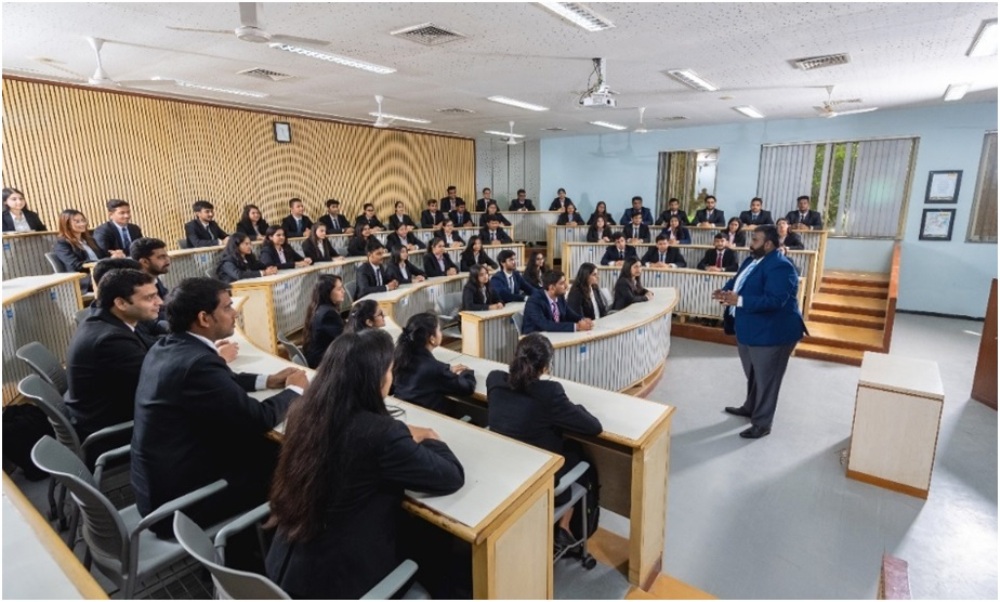
This is a two-year full-time residential programme and follows a trimester system. The programme offers a unique learning experience based on an experiential model where almost 20% of the total curriculum is based on learning from the field. The core learning of the programme is covered through courses in business, general management and human resource management across six terms. Additionally, the first year consists of field immersion spread over three terms apart from summer internship after first year. The programme also includes supplementary learning through various skill development workshops that are part of the curriculum. Information Technology, internationalisation and business ethics are consistent themes of this course.
After going through the programme, students should be able to:
| Duration of the Programme | : | 2 Years |
| Duration of a Term | : | 12 Weeks |
| One Credit Hour | : | 10 hours of classroom contact hours (10 Sessions of 60 minutes each) |
| Session Duration | : | 60 minutes each |
| Credit Requirements | : | 108 Credits |
| No. of Terms | : | 6 Terms |
| Field Immersion | : | 9-12 weeks, spread across the first year |
| Summer Internship | : | 8-10 weeks at the end of the first year |
| Programme Structure | : | First Year 60 credits · Core Courses: 48 credits · Skill Workshops : 06 credits · Field Immersion: 06 credits Summer Internship – 06 credits Second Year 48 credits |
The main pedagogical tools are lectures, case studies (Harvard, Ivey and other International and Indian cases) simulations and project work. Most courses are designed to have a clinical component delivered through simulations, projects, role-plays, group discussions and exercises. Students are encouraged to explore further learning opportunities offered through Massive Open Online Courses (MOOCs) from different providers. To ensure effective learning, the Institute leverages the latest technologies to make teaching-learning process more experiential and participative.
Learning is further enhanced through field immersion of total 9 weeks (3 weeks in each term of the first year) and skill development workshops. For this learning, students are placed with corporates and/or not-for-profit organisations to enable an understanding of industry work processes and create learning anchors for becoming industry ready. Supplementary learning is planned, to expose students to various tools such as competency mapping and simulations and for soft-skills development such as reflective learning, inter-personal communication, etc. which are at the core of effective human resource management.
All in all, the pedagogy is designed to develop HRM professionals who are more self-aware and holistic. Continuous evaluation is designed to maintain academic rigor. Strong support from the faculty members and robust emphasis on ethics and values are the notable features of the pedagogy.
Additionally, interaction with industry experts, live projects, innovation workshops, participation in conclaves and learning through co-curricular activities are a regular part of the learning experience at Nirma University.